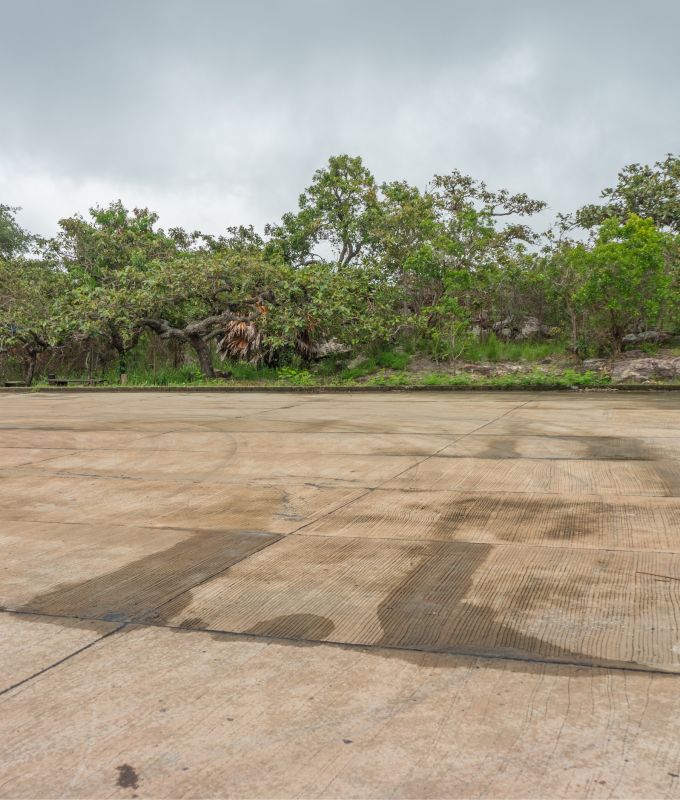Ultimate Guide To Products For Concrete Installations For Every Project
Explore a comprehensive range of trusted products to support various concrete installation needs and complexities.
 Concrete installations are fundamental components in many construction and renovation projects, providing durable surfaces and structural elements for residential, commercial, and industrial applications. Selecting the right products for concrete installation ensures longevity, safety, and aesthetic appeal. From foundational work to decorative finishes, a variety of specialized tools and materials are available to facilitate precise and efficient work. Proper preparation, mixing, pouring, and finishing are essential steps that depend heavily on the quality and appropriateness of the products used.
Concrete installations are fundamental components in many construction and renovation projects, providing durable surfaces and structural elements for residential, commercial, and industrial applications. Selecting the right products for concrete installation ensures longevity, safety, and aesthetic appeal. From foundational work to decorative finishes, a variety of specialized tools and materials are available to facilitate precise and efficient work. Proper preparation, mixing, pouring, and finishing are essential steps that depend heavily on the quality and appropriateness of the products used.
Top Overall Option
Concrete Mixing and Pouring Kit
A comprehensive concrete mixing and pouring kit typically includes high-quality mixers, durable buckets, and essential accessories that facilitate even mixing and efficient pouring. These kits are designed to support various project sizes and can help ensure consistent results. They are suitable for both small-scale DIY projects and larger construction tasks, providing a reliable foundation for successful concrete installation.
Types of Products For Concrete Installations
Concrete Mix
Pre-blended concrete mix designed for easy pouring and setting, suitable for various applications from slabs to footings.
Form Liners
Flexible or rigid forms used to shape concrete surfaces, allowing for decorative or structural finishes.
Reinforcement Mesh
Steel mesh or rebar used to reinforce concrete, enhancing its tensile strength and durability.
Curing Compounds
Chemical agents applied to freshly poured concrete to retain moisture and promote proper curing.
Sealants and Waterproofing
Products used to seal and waterproof concrete surfaces, protecting against moisture and environmental damage.
Concrete Edging Tools
Tools designed to create clean, defined edges around concrete slabs or pathways.
Concrete Vibrators
Equipment used to eliminate air pockets and ensure proper compaction of poured concrete.
Surface Finishing Tools
Tools such as trowels, floats, and edgers used to achieve smooth and textured finishes on concrete surfaces.
Expansion Joints
Materials used to create controlled expansion gaps in concrete to prevent cracking.
Concrete Anchors
Fasteners used to secure fixtures or structures to concrete surfaces.
Bonding Agents
Adhesives applied to improve the bond between new and existing concrete surfaces.
Concrete Patching Materials
Products designed to repair cracks, holes, or surface damage in existing concrete.
Concrete Coloring Agents
Pigments and stains used to add color or decorative effects to concrete surfaces.
Form Release Agents
Substances applied to forms to prevent concrete from sticking and facilitate form removal.
Concrete Cutting and Drilling Equipment
Tools such as saws and drills designed for precise cutting or drilling into hardened concrete.
Popular Choices
Pre-mixed concrete delivered in truckloads, suitable for large-scale projects requiring consistent quality.
Hand or power tools used to smooth and finish concrete surfaces for a polished appearance.
Protective coatings applied to concrete to resist stains, moisture, and surface wear.
Supports used to hold reinforcement bars in proper position during concrete pouring.
Tools for creating clean and defined edges on concrete slabs or walkways.
Devices used to eliminate air pockets and ensure proper compaction of poured concrete.
Stains that add decorative color effects to concrete surfaces, enhancing visual appeal.
Flexible materials used to create expansion joints, accommodating concrete movement.
Products that facilitate easy removal of forms and prevent surface blemishes.
Specialized mortar for patching and repairing damaged or cracked concrete surfaces.
Power tools designed for precise cutting into hardened concrete surfaces.
Materials applied to concrete to prevent water ingress and protect structural integrity.
Steel mesh used to reinforce concrete slabs and prevent cracking under load.
Adhesives that enhance the bond between new and existing concrete surfaces.
Insulating covers that help retain moisture during the curing process.
When undertaking concrete projects, it’s important to consider compatibility with the specific application, whether it involves creating a new driveway, installing a patio, or constructing a foundation. The environment and site conditions also influence product choice, as factors like weather, load requirements, and surface exposure can impact performance. Using high-quality products designed for concrete work can help achieve better results, reduce the need for rework, and extend the lifespan of the installation.
In addition to basic tools, there are numerous accessories and supplementary materials that can enhance the process. These include forms for shaping concrete, sealants for protection, curing compounds to promote proper setting, and reinforcement materials like rebar or mesh for added strength. Proper selection and application of these products contribute to a smooth workflow and a finished product that meets project specifications. Whether you are a DIY enthusiast or a professional contractor, understanding the range of available products can help in planning and executing successful concrete installations.
Key Buying Considerations
- Project scale and scope to determine the quantity and type of products needed.
- Compatibility of products with specific concrete applications and environmental conditions.
- Ease of use and application methods suitable for DIY or professional use.
- Durability and longevity of materials in the intended setting.
- Compatibility with existing surfaces or structures if performing repairs or additions.
- Curing and finishing requirements to achieve desired surface quality.
- Budget constraints without compromising essential quality and safety standards.
- Availability of replacement parts or accessories for ongoing maintenance.
- Safety features and ease of handling, especially for power tools.
- Brand reputation and product reviews to assess reliability and performance.
- Compliance with local building codes and standards.
- Environmental considerations, such as VOC content or hazardous materials (if relevant).
- Time required for curing and setting to plan project timelines.
- Storage and transportation needs for large quantities or bulky items.
- Access to technical support or customer service for troubleshooting.
